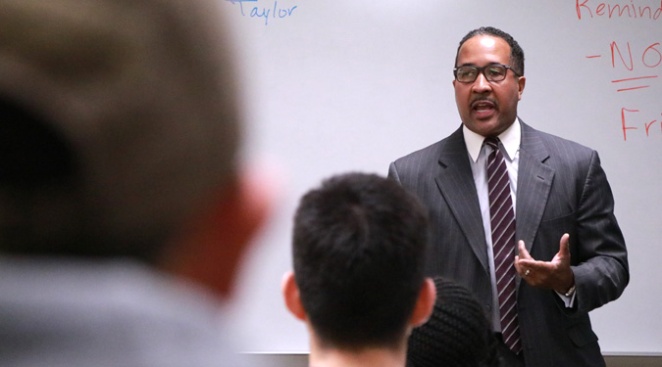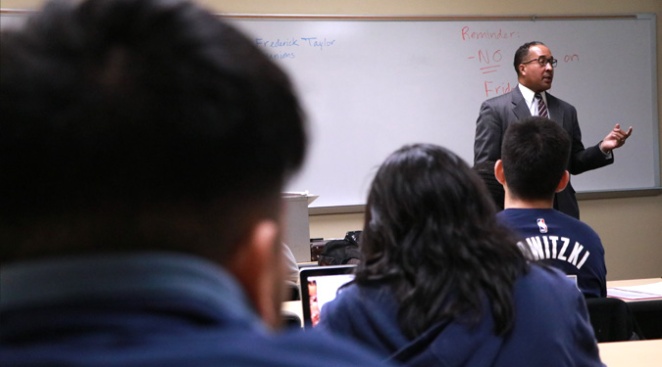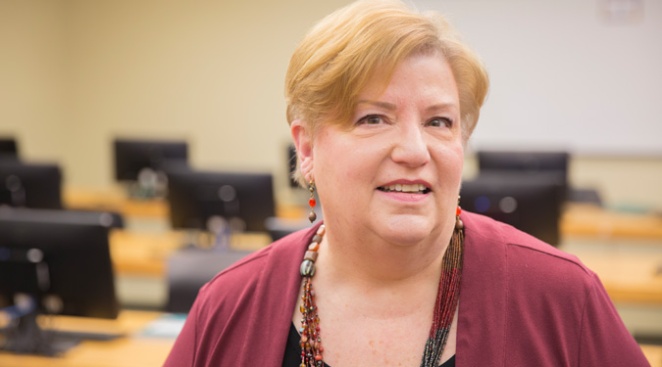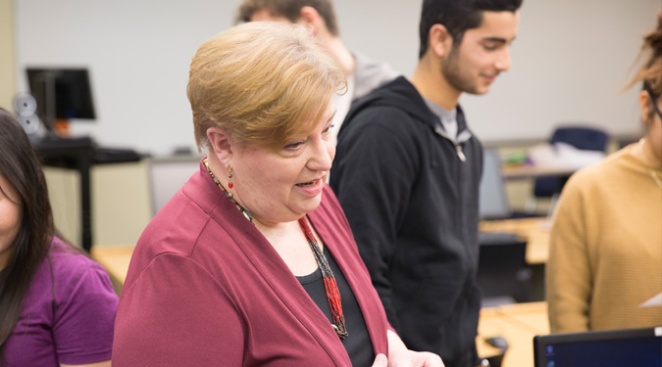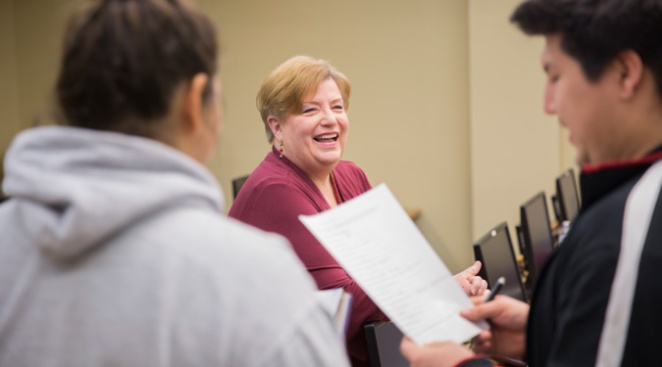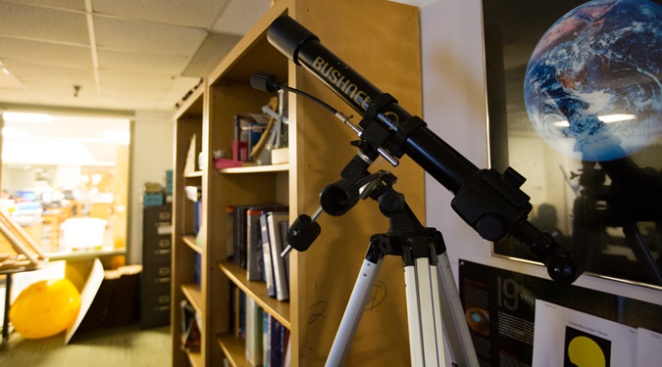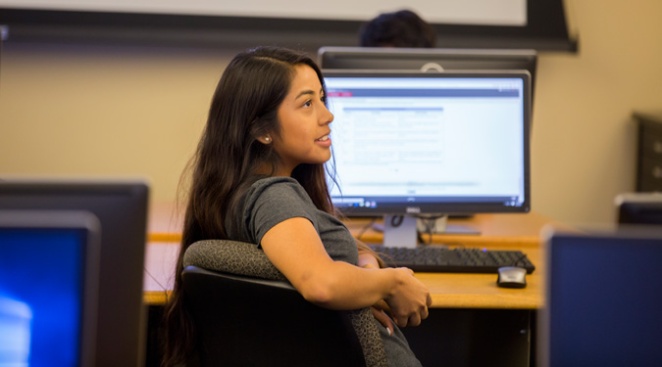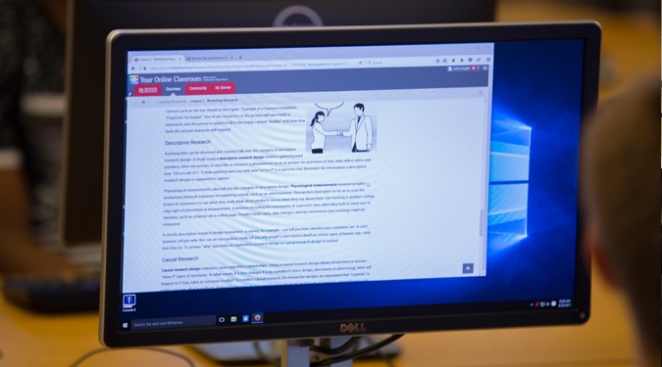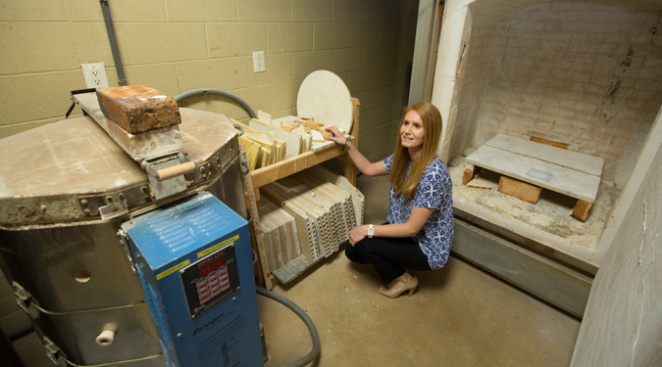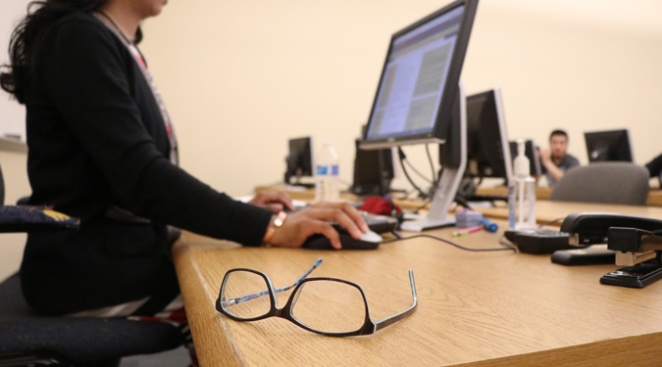The Teaching & Learning Center at Mountain View College seeks to share teaching practices across the entire institution. The following article showcases a faculty member, provides insight into the environment they’ve created for MVC students, and demonstrates effective teaching practices.
This month we showcase Rodney Jackson, Adjunct Faculty in Career and Technical Education.

What is one element about MVC that makes it the “best college on earth?”
MVC’s passion to adapt and focus to accomplish what is best for students, employees, and our larger community. For me it’s about integrity and leading by example.
When someone greets me in the hallways I respond that every day at MVC is, “another day in paradise.” When I see students that I have not seen for a while, I ask them how their grades are. I appreciate each and every opportunity I have here at MVC. Believe me, it could be much worse. There are many people that are unemployed out there or working in jobs or positions they are currently unhappy with. I’m ecstatic that I’m in a positive place and truly appreciate the job I have and the work I get to do.
Another thing about MVC is that we encourage diversity. Thinking outside the box. Our mission is more than just words on paper. It comes down to what we can do differently. How we incorporate those diverse perspectives. What sets us apart is the experience our community has when they come on our campus and witnesses our faculty, staff, and students firsthand. It is an element that makes us the, “best college on earth.”
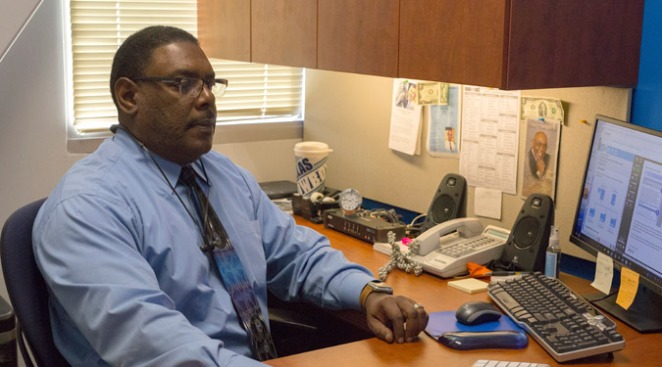
How would your students describe you or your teaching style?
According to the classes’ post surveys and emails, students really appreciate the open, two-way communication, which requires me to actively listen without necessarily forcing my own views on every class or student. Students have expressed that the prompt response to emails and phone calls has eased the burden of learning (the challenge they experience to potentially difficult and technical concepts such as the IT field of study). Past students also have expressed gratitude for a passionate and supportive instructor, both in and outside of the classroom.
For me, teaching is about making a difference in someone’s life. We have a diverse student body in our classes. Every student however has the potential to be reached. I’ve been in classes where I did not have a personal connection with my instructor. Because of such experiences, I set out to establish a strong presence from day one. That is especially important in my online courses.
I really enjoy technology as a whole and having the privilege to teach others is very special for me. I see this as a way to give back. I’ve learned many thinks in my field over the years and I feel that it’s my purpose to give back. I still remember people in my life that saw potential in me. There was one person in particular who told me that I would be a great fit in the IT world. That advice and his willingness to give it changed my life forever. I want to have that impact for my students.
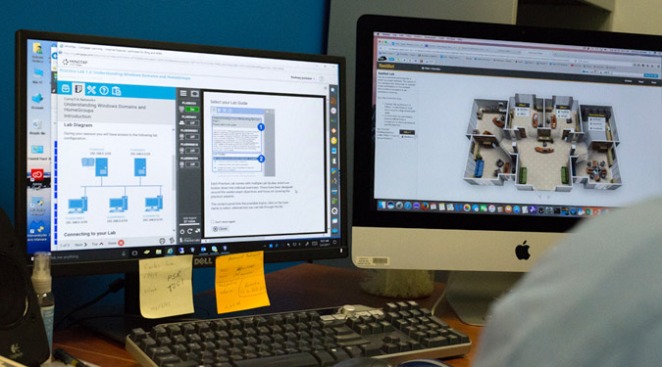
What teaching strategies do you find most successful in your courses?
Being able to adopt, listen, support, and communicate unconditionally. Truly valuing student input creates many great discussions in class. When I’m explaining or lecturing and a student doesn’t understand, it’s a gateway to stop my lecture and fully engage with their question.
I look at it like this. If one student asks a question, there are most likely others that have the same question. I take advantage of every opportunity where I see students curious about content. You can tell when they get it…that look on their face, and even their body language.
When students perceive passion from an instructor, class participation increases. Every semester is a different group of students. No class is ever the same. I find that being willing to go off script as an instructor makes my content relevant to each unique class.
These are just some of the strategies that work well in my courses.
What do your students love most about your courses?
That the course material and real-life experiences provided in the classroom, help prepare and provide a pathway to a successful future career. As one example, I demonstrate how to determine the right computer or laptop to buy, without simply relying on cheap bargain prices. I call it my, “Computer Purchase Cheat Sheet.”
I show them the shortcut by pressing the Windows key + pause button, or by right clicking (This PC) and selecting properties to view the system specs. Example below:
- Processor: AMD or INTEL (multi core processor 3.0-3.5 GHz)
- Installed Memory (RAM): 4GB or 8GB (max for 32bit 4GB)
- System Type: 64bit or 32bit processor
- Windows edition: Windows Home (Basic user) or Professional (Technical user)
This is just one hands-on example. Every class loves the real-world examples I bring in. This results in students that not only learn concepts, but can apply them to their world outside of class.

What is one creative solution you’ve implemented to address a specific challenge in your courses?
Technology makes things possible that we couldn’t possibly fund locally. It makes things like simulation, virtual labs, and even more possible. It also gives our students access to these advanced tools and resources 24×7.
Implementing the Learning Management Systems (LMS) into the classroom has truly changed the the education of students enrolled in our technical courses. Listening and responding to students’ feedback using the virtual classroom has also ensured that MVC is being competitive and providing what businesses are seeking in quality candidates (familiarization with technology, collaboration, and teamwork).
I decided to utilize LMS because students were not fully benefiting from classroom computers due to network security limitations when performing labs. I simply wanted every student to experience exactly what they would encounter in the real technical field.
Student feedback has been excellent; the students can perform their labs in a virtual setting where they have the same experience as if they are working on a real computer or network, which can be accomplished from any laptop/computer. Additionally, the LMS has an app so students can study from their mobile phone or tablet. Technology truly increases access for my students, is something that employers expect, and something the students themselves appreciate from their education.
What has been your most positive or rewarding teaching experience?
When past students return unannounced asking to share their experience and express how they have benefited from the class. When you are stopped in the hallway and a past student says thanks for everything. You never forget that feeling, ever.
I have had students email me stating the class has prepared them for certification, and employment. Some has asked for a letter of recommendation for jobs, so I have made it a priority to assist students with employment every single semester. All of these seemingly small things help ensure that our students believe MVC cares about their education, career, and future success.

What advice would you give to a new faculty member at MVC?
That there is no blueprint to being a model educator, but if you are willing to listen, adapt, and have open two-way communications with students and colleagues, you will experience what paradise feels like each and every day.
In addition, never stop willing to learn. I recently completed my MS in MIS, and plan to continue working toward certifications in Security, Networking, and Cloud Computing to stay current with the revolutionizing technology. This is just one way I demonstrate my commitment to my subject matter and more importantly, to the students I serve.
Who is one person at MVC who has been instrumental to your success (and why)?
WOW! This is a very tough one to answer. Our MVC family has so many outstanding people that deserve this acknowledgement. However, the one person that stands out, has been instrumental and also inspiring in many ways, is Mr. Rogers. Eight years ago, we crossed paths and I addressed Mr. Rogers as Dr. Rogers, and he quickly suggested that Mr. Rogers was appropriate. After taking the moment to introduce myself and getting to know him, it struck me that this person was special for MVC. As time passed, and observing his presence in the classroom, his office, the hallway, the parking lot, and how he conducts himself with students and colleagues, it’s not rocket science to know he is a person everyone can learn something from.
Thank you, MVC family, and special thanks to Mr. Rogers.

 Tell us about your overall experience working through the faculty professional development program.
Tell us about your overall experience working through the faculty professional development program.
 Tell us about your overall experience working through the faculty professional development program.
Tell us about your overall experience working through the faculty professional development program.
 Tell us about your overall experience working through the faculty professional development program.
Tell us about your overall experience working through the faculty professional development program.
 Tell us about your overall experience working through the faculty professional development program.
Tell us about your overall experience working through the faculty professional development program.


 Tell us about your overall experience working through the faculty professional development program.
Tell us about your overall experience working through the faculty professional development program.
 Tell us about your overall experience working through the faculty professional development program.
Tell us about your overall experience working through the faculty professional development program.




